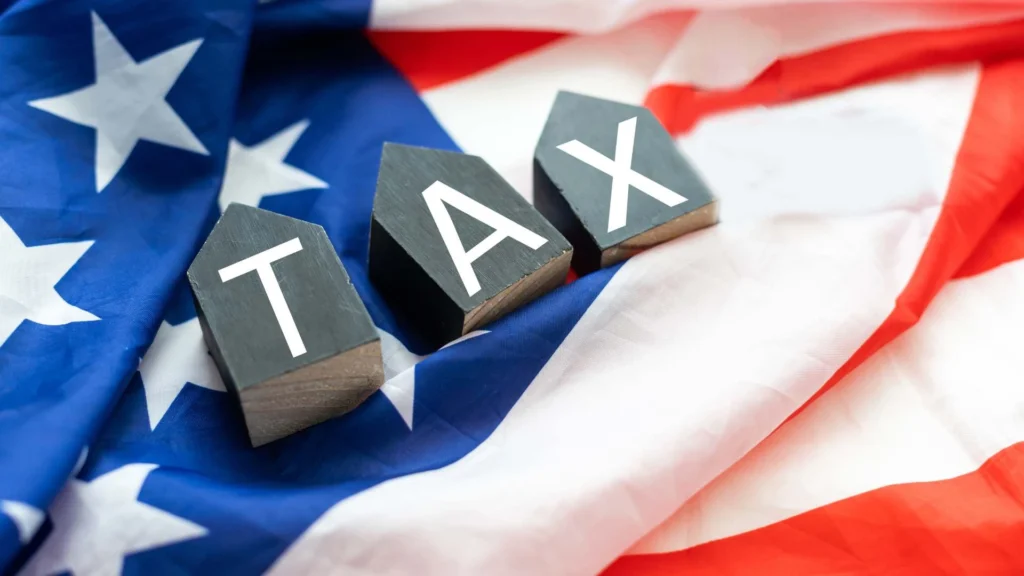Do Federal Employees Pay Taxes? Many people assume that working for the federal government comes with special tax privileges or exemptions. A common question is whether federal employees are required to pay taxes at all. The short answer is yes.
Federal employees pay taxes much like private-sector workers, though certain benefits and programs associated with government employment can affect how their taxes are calculated.
This in-depth guide explains how federal employee taxation works, what taxes apply, which benefits are taxable or tax-advantaged, and how federal employment differs from other types of work when it comes to taxes.
Do Federal Employees Pay Taxes?
Who Is Considered a Federal Employee?
A federal employee is an individual who works for a United States government agency or department and receives compensation from the federal government.
Examples include employees of:
- Executive branch agencies such as the Department of Defense or Department of Homeland Security
- Independent agencies such as the Social Security Administration or Environmental Protection Agency
- Federal courts and judicial offices
- Legislative branch offices
- Federal law enforcement agencies
Most federal employees receive a Form W-2 each year, just like private-sector employees.
Are Federal Employees Required to Pay Taxes?
Yes, federal employees are required to pay taxes. There is no blanket tax exemption for working for the federal government.
Federal employees generally pay:
- Federal income tax
- Social Security tax
- Medicare tax
- State income tax, depending on residency
- Local or municipal taxes where applicable
Their tax obligations are similar to those of other wage-earning employees.
Federal Income Tax for Federal Employees
How Federal Income Tax Applies
Federal employees are subject to federal income tax on their wages. Income tax is withheld from each paycheck based on the information provided on Form W-4.
Taxable income typically includes:
- Base salary
- Overtime pay
- Bonuses and awards
- Certain allowances and differentials
Federal income tax rates are progressive, meaning higher income is taxed at higher rates.
Social Security and Medicare Taxes
FICA Taxes Explained
Federal employees generally pay Social Security and Medicare taxes under the Federal Insurance Contributions Act, commonly referred to as FICA.
These taxes include:
- Social Security tax at 6.2 percent
- Medicare tax at 1.45 percent
Higher earners may also pay an additional Medicare tax once income exceeds certain thresholds.
Federal Retirement Systems and Tax Implications
Federal retirement benefits play a major role in a government employee’s overall compensation, and each system comes with its own tax rules.
Understanding how these systems are structured and how contributions, benefits, and payouts are taxed helps federal employees plan both for retirement and for their current tax obligations.
Civil Service Retirement System and Taxes
Who Is Covered Under CSRS
The Civil Service Retirement System applies mainly to long-time federal employees who were hired before 1984 and did not transition into the newer retirement system. Because CSRS predates Social Security integration, its tax treatment differs significantly from more modern plans.
Payroll Taxes Under CSRS
Employees covered by CSRS generally do not pay Social Security tax on their federal wages. This is because CSRS itself was designed to replace Social Security benefits for these workers.
However, CSRS employees do pay:
- Medicare tax on wages
- Mandatory contributions to the CSRS pension system
Medicare taxes are withheld automatically from each paycheck at the standard rate.
Taxation of CSRS Retirement Benefits
When a CSRS employee retires, pension payments are subject to federal income tax. A portion of each payment may be considered a return of the employee’s after-tax contributions and is not taxed again. The remaining portion is taxable as ordinary income.
State tax treatment of CSRS pensions depends on state law, with some states offering partial or full exemptions for government retirement income.
Federal Employees Retirement System and Taxes
Overview of FERS Coverage
Most current federal employees are covered under the Federal Employees Retirement System, which was implemented in 1987. FERS is designed to work alongside Social Security and includes multiple components that together form a comprehensive retirement package.
Core Components of FERS
FERS consists of three primary elements:
- Social Security benefits
- A basic defined benefit pension
- Thrift Savings Plan contributions
Each component has its own tax implications.
Payroll Taxes Under FERS
Employees under FERS pay both Social Security and Medicare taxes, just like private-sector employees. These payroll taxes fund future Social Security and Medicare benefits and are withheld automatically from each paycheck.
Taxation of FERS Pension Payments
The basic FERS pension is taxable at the federal level when benefits are received. As with CSRS, a portion of the pension may be excluded from taxation if it represents a return of employee contributions. The remaining amount is taxed as ordinary income.
State taxation of FERS pensions varies by state.
Thrift Savings Plan and Tax Treatment
The Thrift Savings Plan is one of the most valuable benefits available to federal employees. It functions similarly to a private-sector 401(k) plan and offers significant tax advantages.
Traditional TSP Contributions
Traditional TSP contributions are made using pre-tax dollars. This reduces an employee’s taxable income in the year contributions are made, which can lower current tax liability.
Key tax points include:
- Contributions reduce current federal taxable income
- Investment earnings grow tax-deferred
- Withdrawals in retirement are taxed as ordinary income
Early withdrawals may be subject to penalties unless an exception applies.
Roth TSP Contributions
Roth TSP contributions are made with after-tax dollars, meaning they do not reduce current taxable income.
However, Roth TSP accounts offer important long-term benefits:
- Investment growth is tax-free
- Qualified withdrawals in retirement are not subject to federal income tax
- Contributions can provide tax diversification in retirement
Eligibility for tax-free withdrawals depends on age and holding period requirements.
Allowances, Differentials, and Special Pay
In addition to base salary, federal employees may receive various forms of additional compensation depending on their role and location.
Common Types of Additional Pay
Examples of supplemental pay include:
- Locality pay to reflect regional cost differences
- Hazard pay for dangerous or high-risk duties
- Cost-of-living adjustments
- Performance bonuses and awards
Tax Treatment of Special Pay
Most forms of additional compensation are considered taxable income. They are subject to federal income tax withholding, as well as Social Security and Medicare taxes when applicable.
These payments are included in total wages reported on the employee’s Form W-2.
State Income Taxes for Federal Employees
Determining State Tax Liability
Federal employees are generally taxed by the state in which they are legal residents, regardless of where their federal agency or duty station is located.
Some states impose no income tax, while others apply graduated or flat tax rates to wages.
State Taxation of Federal Retirement Income
State rules vary widely when it comes to taxing federal retirement benefits.
- Some states exempt all or part of federal pension income
- Others tax retirement income fully
- Certain states offer age-based or income-based exclusions
Understanding your state’s treatment of federal wages and retirement income is critical for accurate tax planning.
Local and Municipal Taxes
When Local Taxes Apply
In some areas, federal employees may also owe local or municipal income taxes. These taxes are based on city or county rules and typically depend on residency rather than employer type.
Local taxes may apply if you live in:
- A city with an income tax
- A county that imposes local wage taxes
Impact on Take-Home Pay
Local taxes are often withheld from paychecks and can significantly affect take-home pay, especially in high-tax jurisdictions.
Tax Treatment of Federal Employee Benefits
Health Insurance Contributions
Employer-paid contributions toward federal employee health insurance premiums are generally excluded from taxable income. This reduces overall tax liability while providing valuable coverage.
Flexible Spending Accounts
Federal employees may contribute to health care and dependent care flexible spending accounts.
These contributions are typically:
- Made with pre-tax dollars
- Excluded from federal income tax
- Excluded from Social Security and Medicare taxes in many cases
FSAs lower taxable income while helping cover eligible expenses.
Life Insurance Benefits
Basic life insurance coverage provided by the federal government is generally tax-free up to a certain amount. If coverage exceeds that limit, the value of the excess coverage may be considered taxable income and included in wages.
Federal retirement systems offer valuable long-term benefits, but each comes with specific tax rules that affect both current paychecks and retirement income.
Whether covered by CSRS or FERS, federal employees pay close attention to how payroll taxes, retirement contributions, allowances, and benefits are taxed.
By understanding these tax implications early and planning accordingly, federal employees can maximize the value of their benefits, reduce unnecessary tax exposure, and build a more secure financial future.
Are Federal Employees Ever Tax-Exempt?
Federal employees are often assumed to receive special tax exemptions because they work for the government, but in reality, there is no broad tax exemption tied to federal employment. Federal employees are generally taxed the same way as private-sector workers.
Their salaries are subject to federal income tax, payroll taxes, and applicable state and local taxes. However, while federal employees are not tax-exempt as a group, certain types of income, benefits, or contributions may receive favorable or special tax treatment under the law.
These situations are limited and should be viewed as exceptions rather than complete exemptions.
No General Tax Exemption for Federal Wages
Federal employee wages are fully taxable unless a specific law provides otherwise. This includes:
- Base salary
- Overtime pay
- Bonuses and performance awards
- Locality pay and differentials
Working for the federal government does not remove the obligation to pay federal income tax or payroll taxes.
Pre-Tax Retirement Contributions
One of the most common tax advantages available to federal employees involves retirement savings.
Contributions made to traditional retirement accounts, such as a traditional Thrift Savings Plan, are deducted from taxable income in the year they are made. This means:
- The contributed amount is not subject to federal income tax at the time of contribution
- Taxes are deferred until the funds are withdrawn in retirement
This is a tax deferral, not a permanent exemption, since withdrawals are generally taxed as ordinary income later.
Certain Relocation and Moving Benefits
Some federal employees receive relocation benefits when they are transferred for work.
While many moving expenses are taxable under current law, certain relocation-related benefits may still receive favorable tax treatment depending on the nature of the expense and the employee’s status.
Examples may include:
- Reimbursement for specific travel costs
- Temporary lodging allowances in limited situations
- Certain overseas or hardship assignments
Most relocation benefits are reported as taxable income unless explicitly excluded by law.
Specific Allowances With Special Tax Treatment
Federal employees may receive allowances that are partially or fully excluded from taxable income in limited circumstances.
These can include:
- Certain overseas cost-of-living allowances
- Housing allowances for employees stationed abroad
- Hardship or danger pay in specific international assignments
The tax treatment of these allowances depends on the employee’s duty location and the specific statutory authority under which the allowance is paid.
Tax-Free or Tax-Advantaged Benefits
Some benefits provided to federal employees are excluded from taxable income because they fall under general tax rules that apply to all employees, not just federal workers.
These include:
- Employer contributions to health insurance premiums
- Contributions to health care or dependent care flexible spending accounts
- Certain educational assistance benefits within allowed limits
Again, these are benefit-based exclusions rather than exemptions tied to employment status.
Misconceptions About Federal Employee Tax Status
A persistent misconception is that federal employees are exempt from taxes because the federal government is their employer. In reality:
- Federal employees pay federal income tax like everyone else
- Payroll taxes apply unless a specific retirement system rule states otherwise
- State and local taxes still apply based on residency
Any special treatment is narrowly defined and clearly outlined in tax law.
Why These Distinctions Matter
Understanding the difference between tax exemptions and tax advantages is important. Exempt income is never taxed, while tax-advantaged income may simply be deferred or excluded under certain conditions.
Federal employees who assume they are tax-exempt risk under-withholding, penalties, and unexpected tax bills.
Federal employees are not tax-exempt simply because they work for the government. While certain income types, allowances, and benefits may receive favorable tax treatment, these provisions are limited and specific.
They reduce or delay taxation in certain cases but do not eliminate tax responsibility altogether.
Recognizing these distinctions helps federal employees plan more effectively, comply with tax laws, and avoid costly misunderstandings about their tax obligations.
Tax Filing for Federal Employees
Federal employees file annual tax returns like other taxpayers.
They typically file:
- Federal Form 1040
- State income tax returns
- Local tax returns if required
Most tax filing deadlines and rules apply equally to federal and non-federal workers.
Common Tax Misconceptions About Federal Employees
There are several myths surrounding federal employment and taxes.
Common misconceptions include:
- Federal employees do not pay federal income tax
- Government salaries are tax-free
- Federal retirement income is never taxed
In reality, federal employment does not eliminate tax obligations.
When Federal Employees Might Owe More or Less Tax
Tax liability can vary depending on:
- Filing status
- Number of dependents
- Retirement contributions
- Use of tax-advantaged benefits
Effective tax planning can help federal employees manage their overall tax burden.
Final Thoughts
Do federal employees pay taxes? Yes, they do. Federal employees are taxed much like private-sector workers and are subject to federal income tax, payroll taxes, and applicable state and local taxes.
While federal employment offers valuable benefits and tax-advantaged programs, it does not provide a general tax exemption. Understanding how wages, benefits, and retirement contributions are taxed allows federal employees to plan effectively and avoid surprises at tax time.
With accurate withholding, smart use of benefits, and proper filing, federal employees can stay compliant while making the most of the financial advantages their employment offers.















































